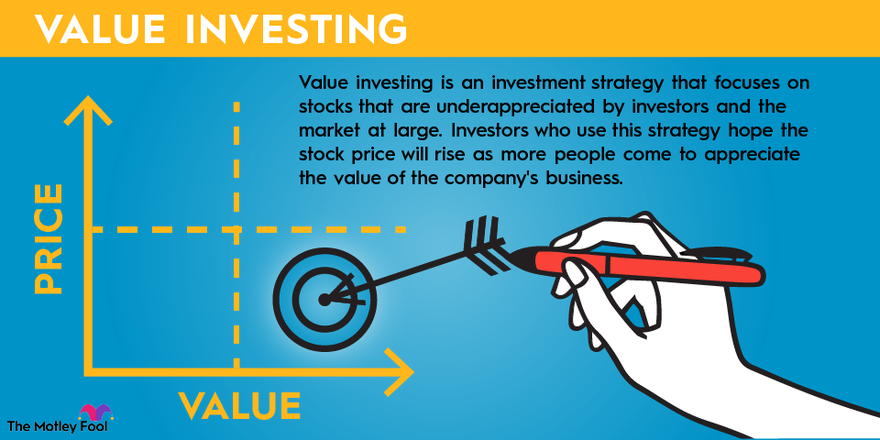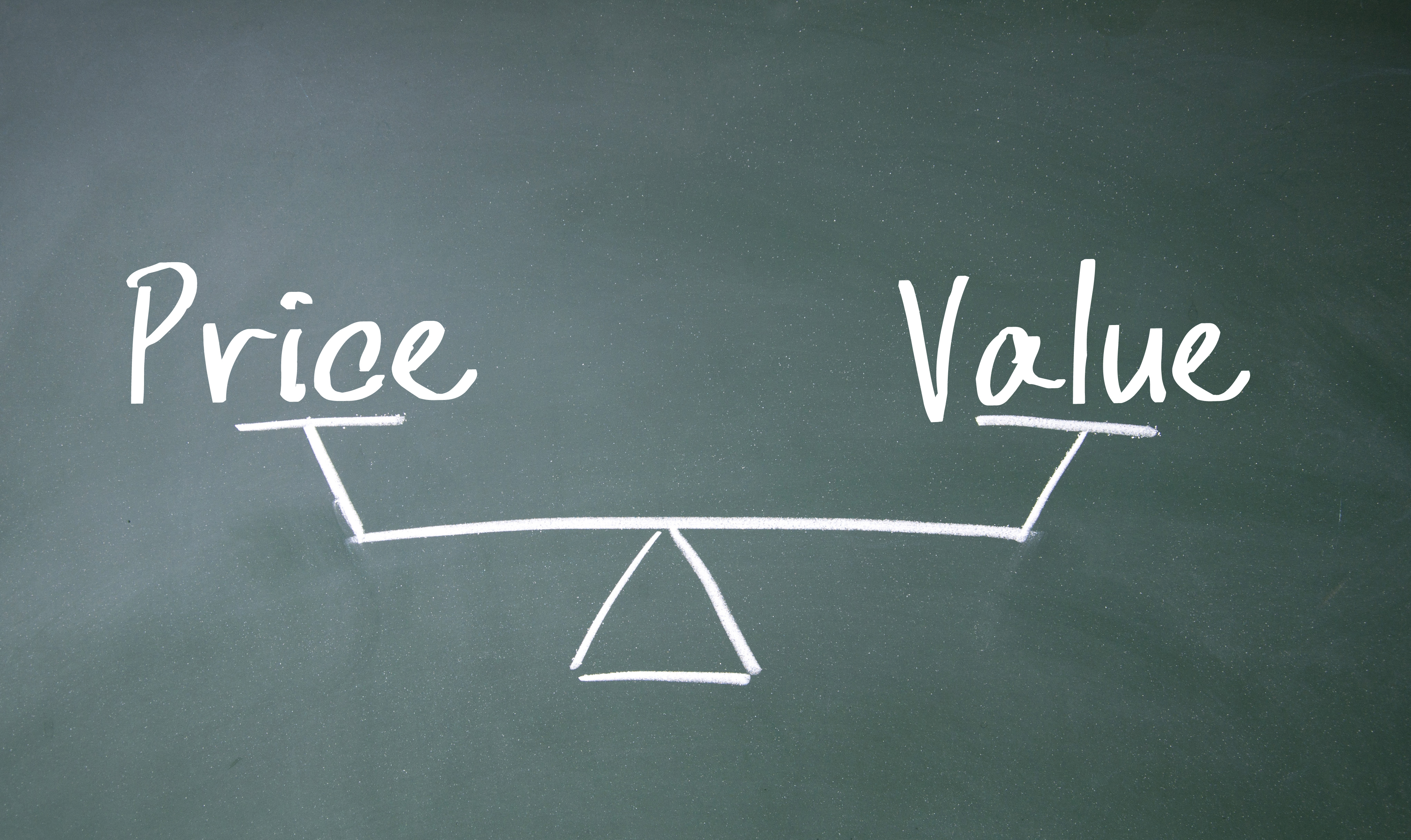A stock can become overvalued when the price of a security becomes detached from its underlying fundamentals. In the short run, stocks can stray far from their intrinsic value, but in the long run, they will eventually move back closer to the true value of the underlying company.
Sometimes, this results in an opportunity to buy undervalued stocks, but it can also swing the other way. If you buy an overvalued stock, it will likely end up underperforming the market as the price eventually falls back to its real value.

What is an overvalued stock?
An overvalued stock is one that trades at a price significantly higher than its fundamental earnings and revenue outlooks suggest it should. It may also trade at a price-to-earnings (P/E) multiple higher than its peers when adjusted for future growth.
How to determine whether a stock is overvalued
You can use a variety of metrics to assess a stock's value. Two of the most common are the P/E ratio and the enterprise-value-to-EBITDA (earnings before interest, taxes, depreciation, and amortization) ratio, or EV/EBITDA. You may also hear about the earnings yield, which is just the inverse of the P/E ratio. All three are measurements of the current stock price versus the underlying company's earnings or earnings potential.
It's also important to consider a company's future earnings growth. All else being equal, a fast-growing company absolutely should trade at a higher earnings multiple than a slow-growing company. Some investors look at the price/earnings-to-growth ratio (PEG ratio) as another indicator of whether a stock is overvalued.
Earnings growth and earnings multiples aren't the end-all-be-all of valuation though. Other valuation measures include price-to-book ratio, which is useful for value stocks. The price-to-sales ratio is useful for growth stocks, especially those with negative earnings. Return on equity is a good measure of how well management is using shareholders investments to produce profits and can be helpful for comparing companies to others in their industry.
The best way to determine whether a stock is overvalued is to dig into the company yourself. Make your own estimates for its future revenue growth, margin expansion (or compression), and how it all affects the bottom line. Sometimes, you might find something the rest of the market is missing.
The most overvalued stocks
Here are three overvalued stocks:
| Name and ticker | Market cap | Dividend yield | Industry |
|---|---|---|---|
| Vistra (NYSE:VST) | $56.4 billion | 0.54% | Independent Power and Renewable Electricity Producers |
| United Airlines (NASDAQ:UAL) | $36.7 billion | 0.00% | Airlines |
| Take-Two Interactive Software (NASDAQ:TTWO) | $44.4 billion | 0.00% | Entertainment |
Vistra

NYSE: VST
Key Data Points
United Airlines

NASDAQ: UAL
Key Data Points
United Airlines (UAL -2.18%) stock took off in 2024 as travel demand climbed significantly faster than supply. United’s focus on more efficient planes and long-haul flights has benefited its margins amid soaring demand, which remained strong through the summer of 2025. That’s helped it fill more planes and generate greater revenue per flight. Still, operating margin remains below pre-COVID-19 pandemic levels, which averaged 11.3% from 2015 through 2019.
But United faces a significant threat from a potential recession, which would curb leisure travel. Management said a recession would cut its earnings per share outlook for 2025 by roughly 35%. Meanwhile, competition increasing capacity could keep flight prices stable even if fuel costs continue to climb.
United’s stock value might look attractive at less than 10 times forward earnings, but analysts are expecting slow future earnings growth. What’s more, that valuation is roughly in line with its historical average and the industry average. But United is spending heavily to update its fleet, leaving less capital for things like returning cash to shareholders, making it far less attractive than its peers.
Take-Two Interactive

NASDAQ: TTWO
Key Data Points
Take-Two Interactive (TTWO -1.72%) is home to some of the biggest video game franchises in the industry: NBA 2K, Borderlands, and Mafia, just to name a few. But the biggest of them all is Grand Theft Auto. Its stock fell significantly on news that Grand Theft Auto VI would be delayed six months until fiscal 2027 (May 2026). The sixth installment of the franchise is anticipated to be one of the biggest video game releases of all time. As a result, investors have bid up the stock in anticipation. But the reliance on GTA VI makes Take-Two extremely risky, with its value based on a single release -- a release that already has high expectations built in. A shortfall (or another delay) could send the stock cratering.
The stock now trades for a forward P/E ratio of 91. That's skewed, however, since the release of Grand Theft Auto VI should produce a significant earnings bump. But if Grand Theft Auto VI doesn’t deliver, investors will see the stock price come down to earth, as the valuation normalizes.
Related investing topics
Benefits and risks of investing in overvalued stocks
The list of benefits for investing in overvalued stocks is quite short: There are none. Buying a stock trading above its intrinsic value is like paying $1 for three brand new quarters. While you might have something shiny, it won't be long until you realize it's not worth as much as the amount you gave up to get it.
Some risks of investing in overvalued stocks are:
- Below average long-term returns.
- Sudden declines in share price, especially if earnings reports disappoint analysts.


